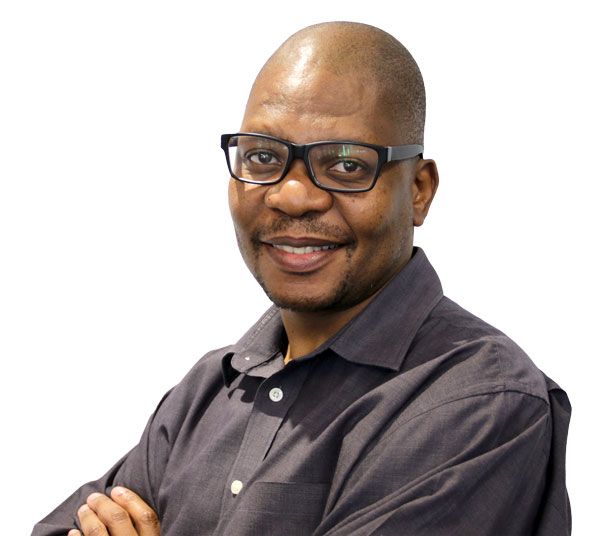

Shaping the Future is an ongoing feature series created in partnership with organisations, companies and brands that are future-focused and are leading the way in building and implementing solutions for our most pressing social, environmental and economic challenges. Informed by global trends, the series showcases local innovation and partnerships with impact that will shape how agile South Africa is as we navigate the transformative years leading up to 2050

Our tomorrow is here today
The pandemic has shown us what is possible when necessity compels us to rise to the occasion. Shaping the Future is a series that celebrates what is possible when the future races to meet us, writes Mondli Makhanya

Mondli Makhanya
Mondli Makhanya
One Tuesday in early March 2020, thousands of Media24 employees stayed home to simulate what it would take to seamlessly produce and distribute the company’s many products should the Covid-19 pandemic force us out of our workplaces, as had already happened in other parts of the world.
Then health minister Zweli Mkhize had just announced that the virus had arrived on our shores. The cases could still be counted using just two hands, a full-blown pandemic was far from being declared and the declaration of a state of national disaster was weeks away.
On the Wednesday following the experiment, all the business units gave feedback on gaps that would need to be filled in case of such an eventuality. Until this point, this was something that was going to happen at some date in the future and we believed we would have more practice runs. No such luck. The numbers rose so fast in that week that a decision was made that Thursday would be our last day at the office.
And thus the future came to us, ready or not.
We had to do things in ways we had previously only worked through in theory. If anything, Covid-19 taught us all that the future will no longer allow for practice runs. It arrives and takes you with it.
Of all the quotes about the valuable lessons to be learnt from crises such as the one that hit the world last year is the 1917 one from author HG Wells, when he said that “the crisis of today is the joke of tomorrow”.
Most of us who are living and suffering through this crisis would vehemently disagree with Wells’ sentiment. We have lost loved ones, lost livelihoods, had our entrepreneurial dreams shattered, had our health compromised and our lives generally upended by this virus. There is very little positive to say about the experiences of the past 18 months.
The only people who had a great year were the narcissistic billionaires who took joyrides into space; the unscrupulous individuals who exploited the pandemic to score a profit or just to steal money; and those government types who saw a gap to grab more power.
So how could Wells possibly say that the crisis of today is the joke of tomorrow? Well, he did have a point. Before Covid-19 hit, there were many things that were deemed difficult, improbable and even impossible. Although advances were happening at a rapid rate, we could still largely negotiate and schedule the pace of change.
The pandemic took that power away from us and forced humanity to change the way it thinks about and does things, from the way we work and the way we learn to even dictating the way we eat and love.

Take for example the vaccines designed to fight the virus for us. In the usual run of things, the vaccines, and in fact any medicines, can take more than 10 years from development to approval, but Covid-19 vaccines were approved and available within months of the detection of the virus. This is unprecedented.

While some of the hesitance around taking the vaccine might be driven by those who believe the process has been too fast, in reality it was a change in the way things are done that speeded up delivery.
Governments, pharmaceutical companies, multilateral bodies and academic institutions united to make the science work in record time.
“ …A true global emergency paired with early application of substantial resources made it possible. Large-scale vaccine clinical trials were organised quickly using networks established in the pursuit of an HIV vaccine. People enrolled quickly due to widespread public interest. Plus, the virus has been spreading rapidly, so regulators could see if vaccine candidates made a difference in a shorter amount of time,” wrote the Nebraska Medicine journal.
That was followed by the biggest vaccination roll-out in human history, again enabled by unprecedented collaboration among stakeholders and the release of boundless human energy.
This effort proved that humanity can and must harness its resources – intellectual, monetary and otherwise – at a rapid rate to deal with the challenges and opportunities presented by the future. Before last year, there were countless papers written, conferences held and predictions made about the future of everything. There were debates about the future of work, the future of communication, the future of travel, the future of education and so on.
Now it is no longer about planning for a hypothetical future.
Our challenge is dealing with a future that has arrived before its time. Over the next months, years and decades, change is going to be happening at breakneck speed. With those rapid changes will come multiple challenges, also at breakneck speed. It is for us as humanity to rise to the occasion and turn these into opportunities.
That is why, beginning today, City Press and Rapport will be championing conversations on the future. We will, together with various partners, focus on the plethora of issues that the country, the continent and the world should be taking by the horns. In this way, we hope to ensure that South Africa is a leader and not merely a follower of trends that will define the future of our species and the planet we inhabit.
